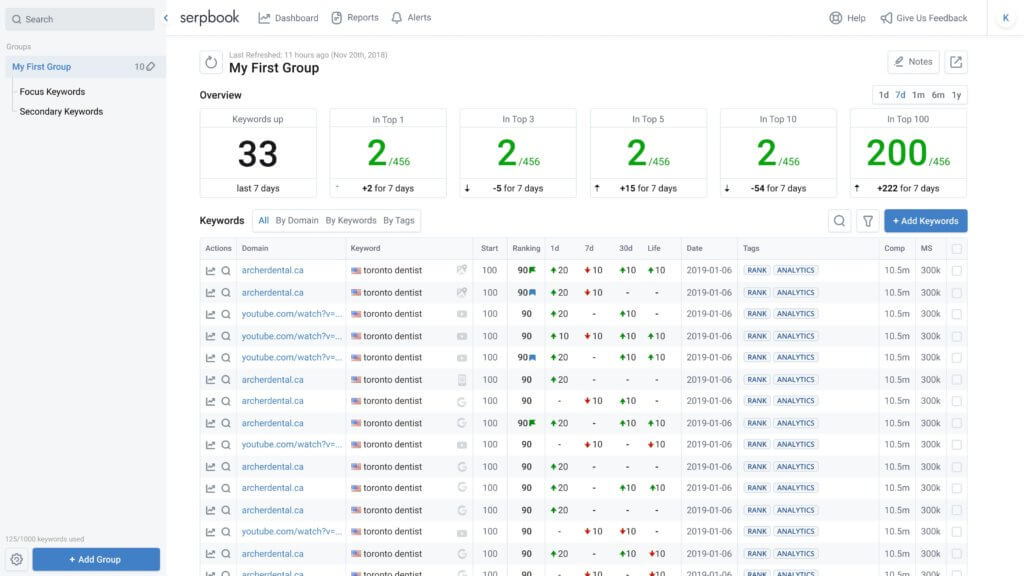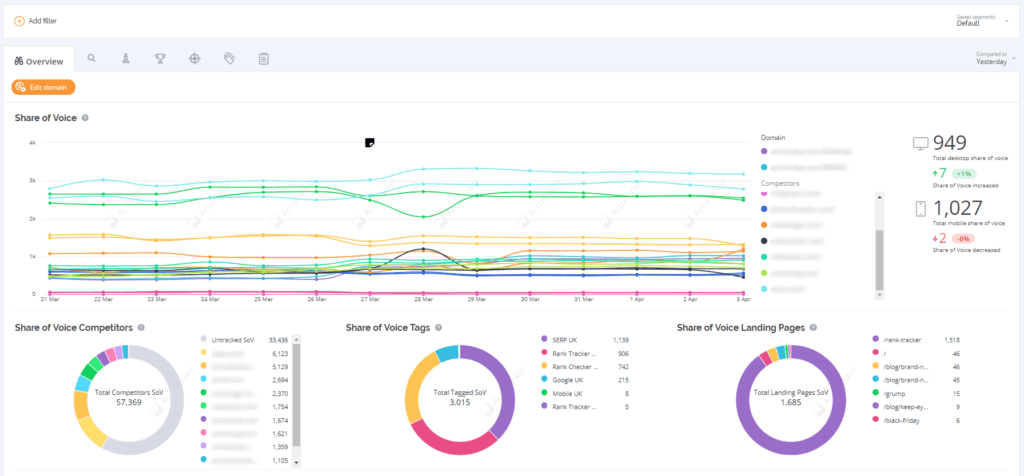If you would like to focus on your SEO and get more and more users from search engines like Google to your website, you will - inevitably - need to:
Now, there are manual approaches you might be using once in a while, where you'd need to make sure your language + country settings in Google are in line with your target audience - but this is a tedious process you might just want to do once in a while to double-check your tools' results. What you really want to look into is so-called rank tracking software.
Key takeaways:
Table of Contents
Rank tracking software asks you for a list of keywords you would like to rank for and the target audience's geography (country or city for local SEO).
The rank tracking software will then frequently query Google (and usually Bing as a second option) and check if your website comes up and at which position. (By the way, modern rank trackers will ask you if you'd prefer to check rankings on mobile phones or desktop computers - these might differ in certain cases.)
The outcome usually is a list of keywords with current rankings and changes over time, as well as a graphical representation of search engine rankings in the last days or months.

Although there are many rank trackers out there, I'd like to take a moment to list some of the most common and recommended ones:
Formerly known as SerpBook, Keyword.com remains one of my favorite Google keyword position checker tools, providing solid results.
Dubbed as the world’s fastest keyword position checker, AccuRanker has positioned itself atop its industry because of the diverse range of features it offers.
Probably the best tool for quick backlink analysis out there, that also comes with an extensive Google rankings tracker.
Boasting over 40 tools and reports, SEMrush has positioned itself as the online marketer’s “pocket knife” and also offers a free keyword rank checker.
SEMRush is a well-rounded software that covers different aspects of online marketing, from SEO to content, market research to advertising, and more.
Of course, there are many more rank trackers out there, and I'll probably extend this list the next time I work my way through a few more and test them.

OK, so if you'd really need to manually check where a certain site comes up in Google search engine results pages, here are 3 recommended methods to get search engine results not biased by your Google user profile or search history, etc.:
As you can see, rank tracking can get tricky when done manually but can be very easy using a Google keyword rank checker or one of the indicated rank tracking software products. At the end of the day, what you're looking for is a quick way to see whether your ongoing SEO work brings the desired success and ranking boosts.



